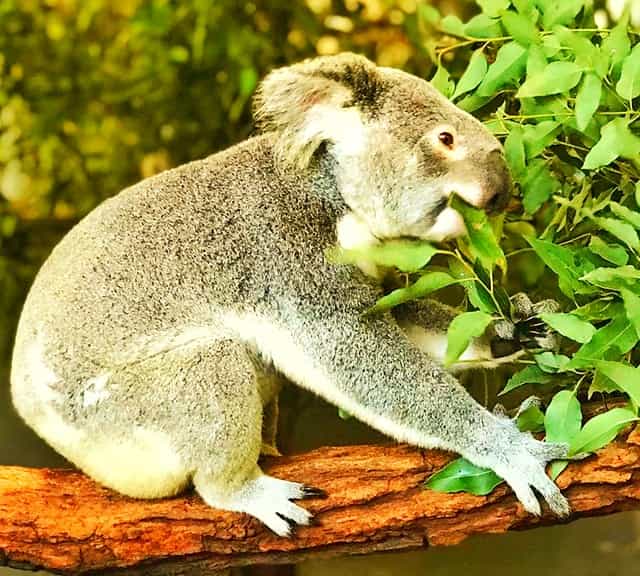Koalas Tooth Decay through its Abrasive Diet
Tooth-decaying is one of the most common occurrences within koalas and their abrasive diet is chiefly responsible for it. Koalas are primarily dependent on the Eucalyptus leaves as part of their diet. These leaves are so much abrasive and hard for the koalas’ tooth that their loss and decaying become the ultimate outcome after its continuous consumption (entire lifespan).
The koalas’ diet (the eucalyptus leaves) is so hard and abrasive that it is primarily responsible for tooth-decaying within koalas.
Sadly; there are no other alternatives for koalas and they only have to eat more and more Eucalyptus leaves. Apart from being abrasive, the Eucalyptus leaves contain poisonous and acidic compounds which are also responsible for tooth decaying within koalas. Let’s have a profound analysis of koalas’ diet (the Eucalyptus leaves) and its impact on tooth-decaying problems within koalas.
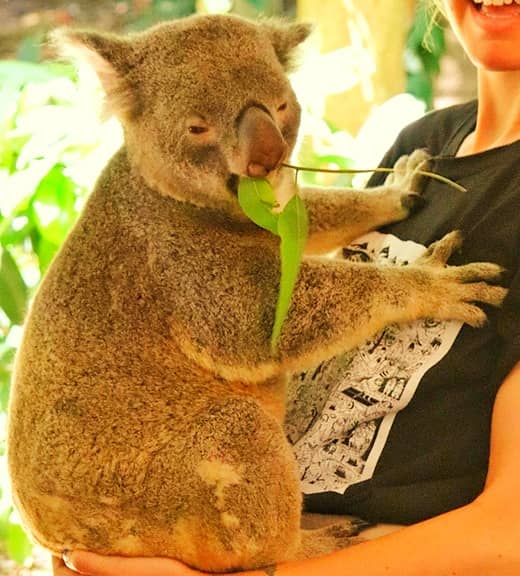
Tooth Decaying is
Common Problem for Koalas
Koalas' Diet (Eucalyptus) is
Responsible for Tooth-Decaying
Koalas' Only Diet is
Eucalyptus Foliage
Eucalyptus Leaves Contain
Poisonous & Acidic Compounds
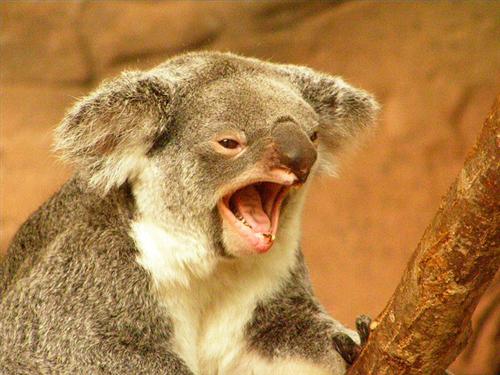
Remember; koalas are not always vulnerable to tooth-decaying throughout their lives. Tooth-decaying develops with the passage of time and almost all koalas always have to suffer from tooth-decaying within their lifespan. This means that young and the adult koalas within their prime do not suffer from any tooth-loss or tooth-decaying while the older koalas usually suffer from tooth-decay.
Tooth-decaying is hardly an issue for the younger and adult koalas in their prime. However; tooth-decaying start occurring within older koalas and it continues to increase with the passage of time.
Once the process of tooth-decaying starts within koalas, it continues to increase as koalas have to eat more and more Eucalyptus leaves to fulfill their energy requirements. This is the key reason that the older koalas consume 41% more Eucalyptus leaves as compared to the younger koalas. Remember; only finely chewed food particles release energy for koalas during the process of digestion while bigger leaves are passed on for excretion.
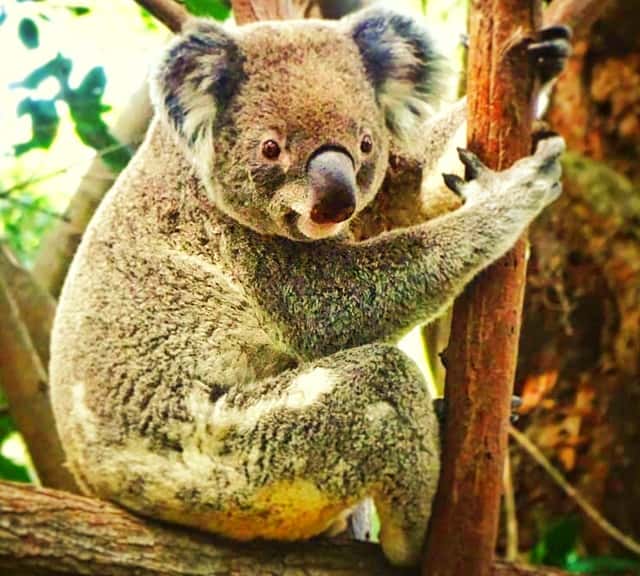
Koalas do not Suffer from Tooth-Decaying
Their Entire Lives
Tooth-Decaying Develops with
The Passage of time
Younger Koalas & Koalas in Prime
No Issue of Tooth-Decaying
Once Tooth-Decaying Triggers
Koalas have to Eat More Eucalyptus
More Eucalyptus Consumption
More Chances of Tooth-Decaying
Tooth-Decaying Reduces
Food Grinding Ability of Koalas
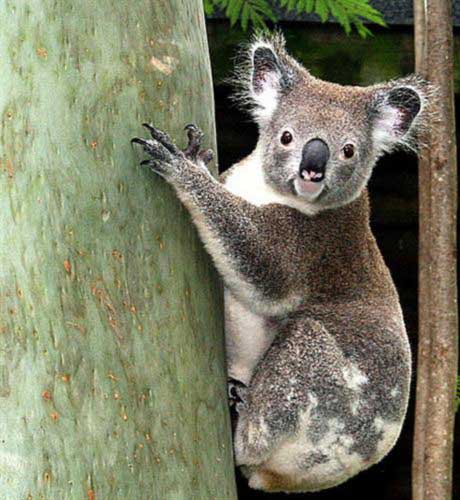
When koalas chew the Eucalyptus leaves, the leaves rub as sand paper against their teeth and with the passage of time (in the older age), the koalas’ teeth get worn down. Even a stage comes within the lives of koalas that their teeth are worn down to stumps and their chewing ability is almost gone.
Eucalyptus leaves act like sand paper for koalas while chewing. This keeps on reducing koalas’ teeth and worn them down to stumps.
A koala with worn down teeth is unable to chew properly and convert any Eucalyptus foliage into finely chewed contents. This is where the starvation issue prevails within koalas and they become weaker and weaker and finally die because of lack of energy within their bodies.
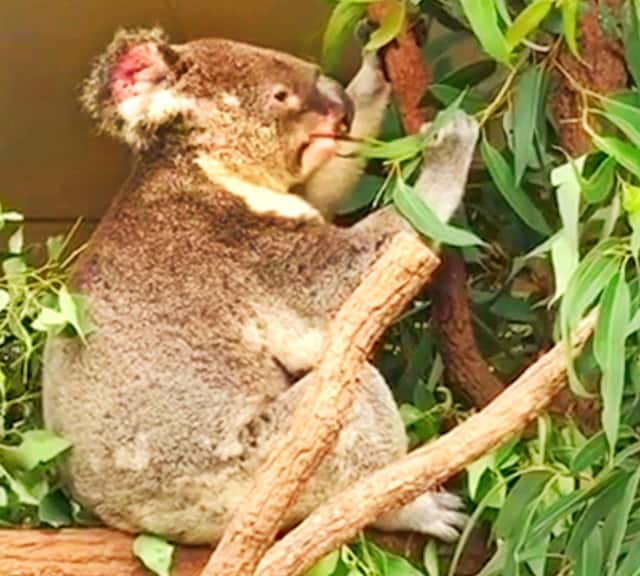
Eucalyptus Leaves Act
Like Sand Paper While Chewing
Eucalyptus Leaves Continues to
Worn Down Teeth of Koalas
Koalas with Worn Down Teeth
Are Unable to Chew Properly
Tooth-Decaying Leads to
Lack of Energy within Koalas' Bodies
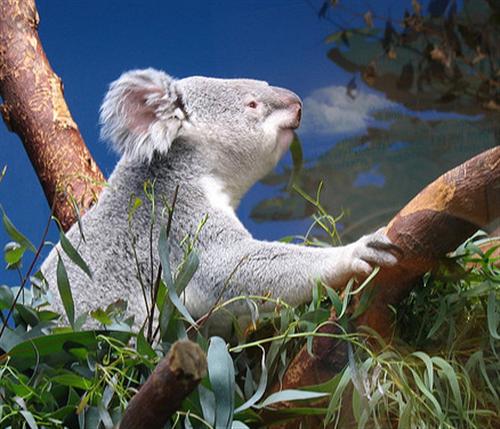
Even worst; koalas have to rechew their food to have them converted into finely chewed particles for better digestion and energy extraction from the Eucalyptus leaves. This process is also almost similar to rumination within other herbivores. Koalas store finely chewed food within their hindgut for the extraction of energy through the process of fermentation.
The impact of koalas’ abrasive diet doubles, when koalas have to rechew or regurgitate the Eucalyptus leaves during the process of Merycism.
This process is called Merycism within koalas as they tend to regurgitate the food from their stomach for proper digestion. The Regurgitating of food (always the Eucalyptus leaves) also severely impacts the wear and tear of their teeth which ultimately results in tooth-decaying within koalas in the older age.
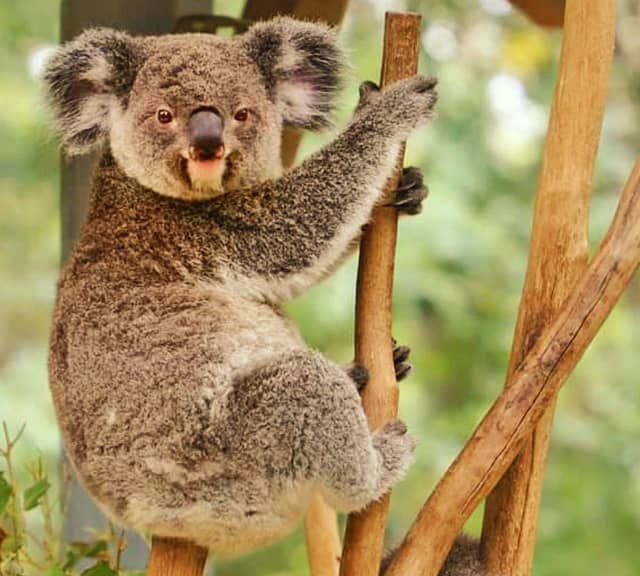
Koalas also have to
Regurgitate the Eucalyptus Leaves
Process of Regurgitating Food is
Called Merycism within Koalas
Koalas have to Regurgitate
To Convert Food into Finely Chewed Contents
Regurgitating of Eucalyptus Leaves
Contributes to Tooth-Decaying within Koalas
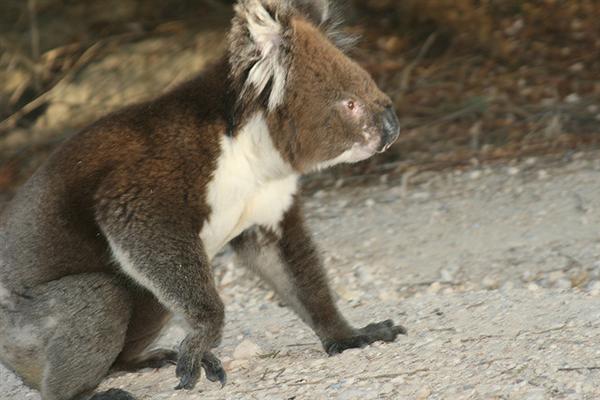
Apart from being abrasive, the Eucalyptus leaves in general are not good for teeth when eaten directly. Even though small doses of the Eucalyptus oils have been used to remove harmful bacteria from teeth but their direct chewing have been known to adversely impact the teeth. Eucalyptus leaves contain a lot of compounds which can result in tooth-decaying of the other animals.
Presence of the strong oils and compounds within the Eucalyptus leaves have the ability to severely impact the teeth of older koalas.
However; the young koalas have the natural ability to compensate the adverse effects of the Eucalyptus leaves. On the other hand; older koalas are not fortunate to have this luxury and they suffer from teeth-decaying at the ending lifecycle of their lives.
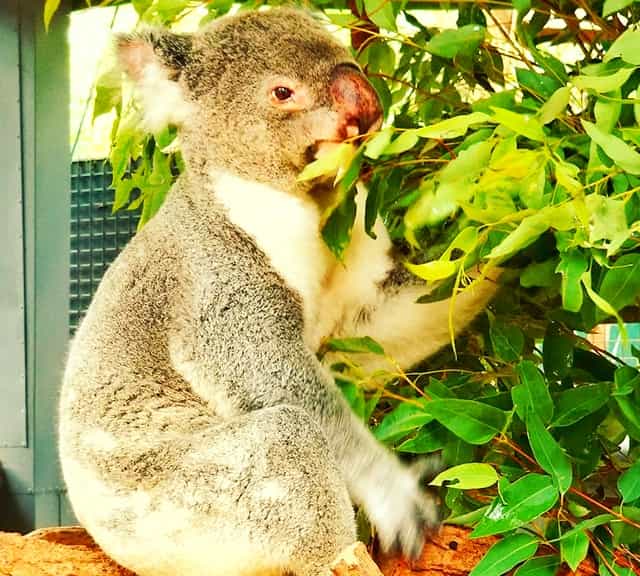
Eucalyptus Leaves Can't be
Eaten Directly
Eucalytpus Compounds are
Responsible for Tooth-Decaying within Koalas
Younger Koalas have
Natural Ability to Overcome Tooth-Decaying
Older Koalas are
Not so Lucky to Overcome Tooth-Decaying result from Eucalyptus
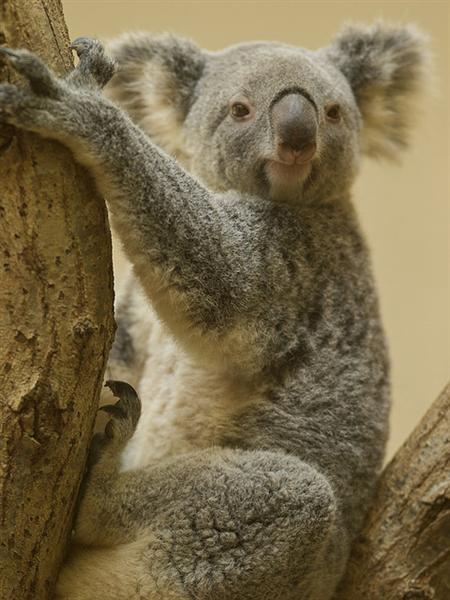
Lastly; despite eating the Eucalyptus leaves which are very abrasive, poisonous, lower in energy and very bad for teeth, koalas surprisingly maintain a reasonable lifespan of 13 years on average. Furthermore; their tooth decaying only gets worst during the last few years of their lives.
Surprisingly; despite having abrasive diet, koalas still maintain a reasonable lifespan of 13 years on average. Over the span of millions of years koalas have perfectly adapted themselves against the Eucalyptus leaves.
This also means that koalas have the natural ability to compensate the damage of the Eucalyptus leaves on their teeth. Remember koalas are living on Eucalyptus leaves for millions of years. Their survival by living on abrasive diet also shows their unique adaptability.
Despite Having Abrsive Diet
Koalas maintain a resonable lifespan of more than 13 years
Koalas are living on Eucalyptus Diet
For Million of years
